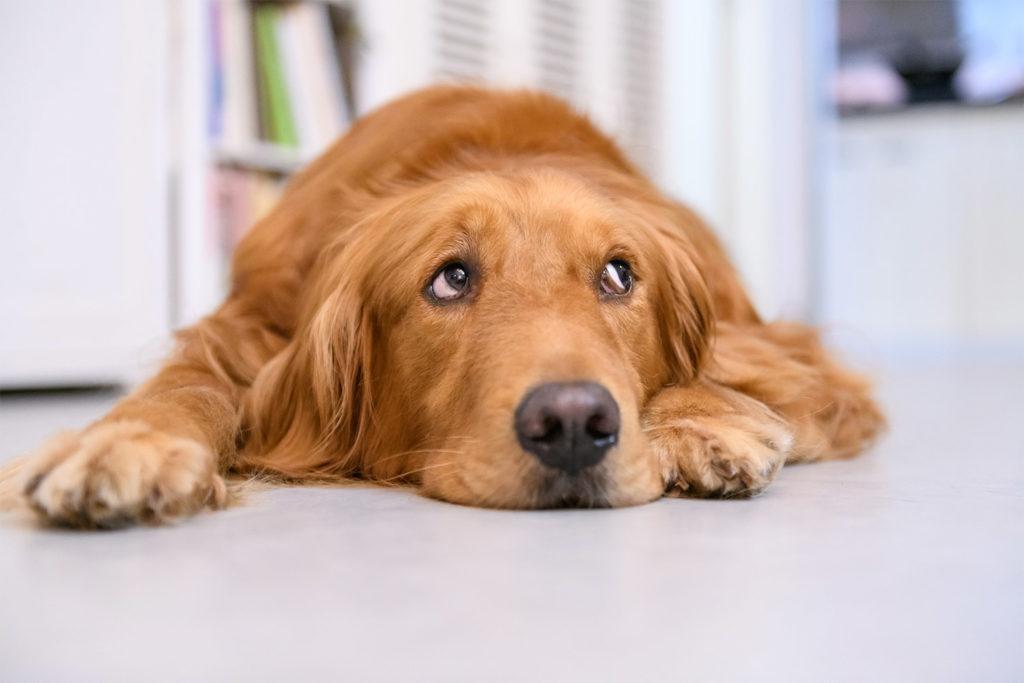What is Bloat in Dogs?
Bloat in dogs can be a sign of serious internal distress. Bloat is a condition where a dog’s stomach fills with gas or fluid. When this occurs, the stomach twists or flips, adding pressure to other organs and cutting back blood flow. Without treatment, there is little to no chance of the dog surviving.
Spotting bloating and seeking treatment right away is crucial in helping your dog, but how can you know if it is suffering from bloat? There are some signs, symptoms, and known causes of bloating that can help you properly identify bloat in dogs and what to do next.
At Winding Road Kennel in Parkersburg, WV, we care about your pet as much as you do. Our team is here to help you properly care for your sick pet, giving well-intended advice and education on possible ailments.
Causes of Bloating in Dogs
One of the main, known factors of bloat in dogs depends on the breed. These breeds are usually large dogs like the Saint Bernard, Irish Setter, Great Dane, Doberman-Pincher, and Boxer breeds. Of course, bloat can happen in any sized dog, but pay close attention to larger dogs.
There is really no set cause of bloating that all scientists and veterinary workers can agree on, but some may include gulping food, lack of exercise, and age. Unfortunately, there are not many ways to prevent bloat from occurring. Dogs with deep, narrow chests may experience bloat more because of their build. The American Kennel Club provides more information on causes, including:
- Size
- Genetics
- Dogs who eat one meal a day
- Eating too fast
- Age
Causes could be unknown until it happens, especially if it is a genetic issue that you could not find out elsewhere. If the dog’s parents or siblings have experienced or died from bloat, there is a higher chance of it happening. If you know this, do not breed your dog. This could be passed to their future litters.
There are many old wives’ tales about the causes of bloat in dogs, and it’s important to do your own research and speak with your vet. If you own a breed that is susceptible to bloating, ask your vet if there are other signs to look for or if there are any ways you can help prevent bloat from occurring. Remember that true, studied causes will have scientific backup.
Signs and Symptoms of Bloating
There are some symptoms and signs of bloat that owners can look out for. The American Kennel Club lists some, including:
- Excess saliva/drooling
- Enlarged abdomen
- Retching
- Weakness
- Sore or swollen stomach area – whining when touched
- Restlessness
- Anxiety
- Shortness of breath
Remember, male dogs and older dogs are also more susceptible to bloat. If you notice any of these signs, seek immediate veterinary care. Even if it isn’t bloat, your dog could have another medical emergency. Without treatment, the dog can go into shock, which is almost always fatal.
What to Do If Your Dog is Bloated
If your dog shows signs of bloat, take them to the vet right away. The vet will be able to check circulation and blood flow, and can determine if surgery is necessary for the bloat. Surgery may not always be necessary, but the vet will make that call after an assessment.
Be gentle when moving your dog. They are most likely uncomfortable and in pain, and may whine or wince when you touch them. Take extra care when carrying them if they are too weak to walk.
There is no proven method for treating dog bloat at home. Even if you’re not sure if that is the problem, call your vet or take them in right away to look over the issues. Time is of the essence, and every second matters if your dog is experiencing bloat. It’s a stressful time for both you and your beloved dog, so it’s important to stay calm but act fast.
Can I Prevent Bloating from Happening to My Dog?
As we mentioned above, it’s difficult to prevent bloat from happening to your dog. You can do everything right, but it could still happen due to genetics, age, or other factors. Keeping an eye on your dog and looking for signs or symptoms of bloat and other illnesses is one way to help it from getting worse. While the mortality rate is high, immediate treatment will give better chances.
Act Fast – Bloat in Dogs is Fatal
If you believe that your dog is experiencing bloat, act now. Call your emergency vet for immediate care. We’ve mentioned many times that bloat is fatal, and we hope that your dog never experiences it. Do not wait; seek veterinary care right away.
Not sure where the closest emergency veterinarian is? There are online services like Emergency Vets USA and VCA that offer a wide search of local emergency vet clinics in all 50 states.
For more information on finding and caring for bloat in dogs, reach out to your vet. Give Winding Road Kennel a call at (304) 428-3518, or follow us on Facebook for more information about our kennel.

